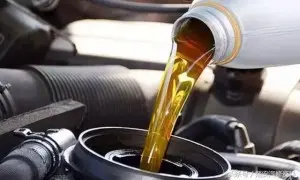9 月 . 24, 2024 10:44 Back to list
Understanding the Importance of Oil Seals in Mechanical Applications and Maintenance
Understanding Oil Seals Essential Components in Machinery
Oil seals, also known as automotive seals or rotary seals, play a crucial role in various machinery and equipment, ensuring optimal performance and longevity. These components are designed to prevent the leakage of fluids — typically oil — from one chamber to another while also keeping contaminants out. This function is vital in maintaining the efficiency of engines, gearboxes, and other mechanical systems.
An oil seal generally consists of several parts a sealing element, a metal outer casing, and a spring. The sealing element is usually made from elastomeric materials like nitrile rubber, which is known for its resistance to heat, oil, and weathering. This material helps maintain a tight seal around moving parts, thus preventing leaks. The metal casing provides strength and durability, ensuring the seal can withstand the pressure and environmental conditions of operation. The spring, often located on the inner lip of the oil seal, exerts pressure against the sealing surface, allowing for a tighter fit and enhancing the sealing capability.
The importance of oil seals cannot be understated
. In automotive applications, for instance, they are instrumental in preventing oil from escaping the engine and ensuring that dirt and debris do not infiltrate moving parts. This protection helps to maintain the optimal lubrication of components, minimizing friction and wear, which ultimately extends the lifespan of the engine.oil seal

Beyond automotive uses, oil seals are found in a variety of machinery, from industrial equipment to household appliances. Their versatility and effectiveness make them indispensable. However, like any mechanical component, oil seals are subject to wear and can eventually fail. Factors such as temperature fluctuations, improper installation, and prolonged exposure to contaminants can all contribute to a seal's deterioration.
Regular maintenance and timely replacement of oil seals are essential practices to prevent leaks and costly damages. Operators should frequently check for signs of wear, such as oil spots around the seal area, and address any issues promptly.
In conclusion, oil seals are a fundamental part of machinery that contribute significantly to performance, efficiency, and longevity. Understanding their function and ensuring their upkeep is vital for anyone involved in the maintenance of mechanical systems. Proper care can lead to a smoother operation and a reduction in costly repairs, underscoring the importance of these small yet mighty components.